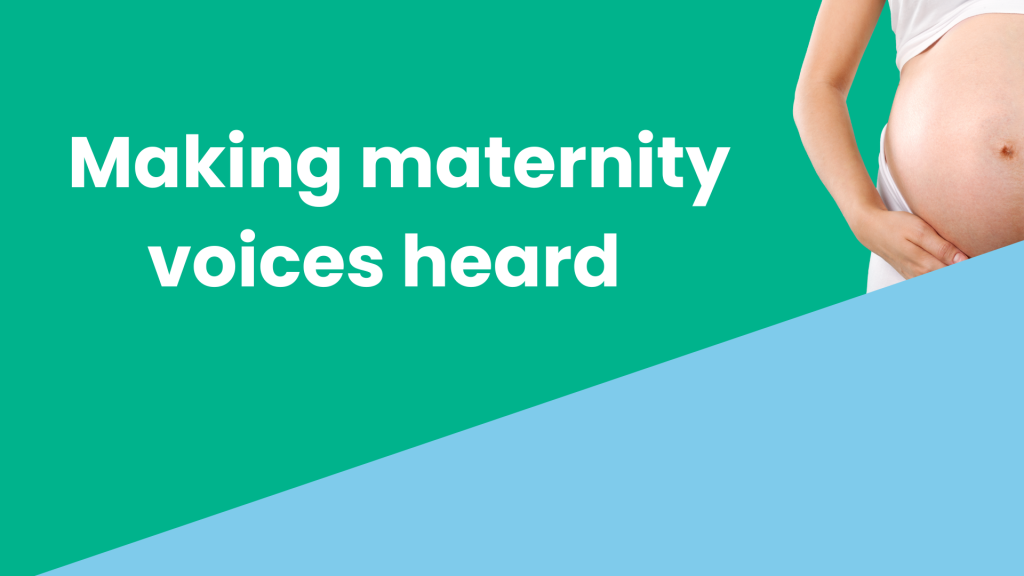The work carried out by a team of volunteers gathering feedback around maternity and neonatal services is of such importance that they should receive better recognition and funding, according to a new report.
Healthwatch Norfolk carried out an independent review of the Norfolk and Waveney Maternity and Neonatal Voices Partnerships (MNVPs). These partnerships gather feedback from patients and families and use it to improve the safety and quality of maternity and neonatal services.
The James Paget University Hospital in Gorleston, The Queen Elizabeth Hospital in King’s Lynn and The Norfolk and Norwich University Hospital each have their own MNVP group.
Assessing the work of MNVPs
Healthwatch Norfolk used recent NHS England guidance to help structure its research to assess how MNVPs can do the work they are asked and ensure feedback improves patient care.
Their teams worked with the Norfolk and Waveney Integrated Care Board (ICB) and interviewed the leads from the MNVPs at the three acute hospitals, alongside other staff members. They also spoke to the team from the Kernow MNVP, which is regarded as one of the best in the country.
Findings
Healthwatch Norfolk found each MNVP is doing a lot of work within their local community to forge strong links and use data to make changes.
However, the review found there needed to be an increased focus on neonatal work, which was introduced into MNVPs at a later stage than maternity. As a result, the neonatal aspect is less established and does not yet have the same depth of expertise within the team.
Furthermore, the MNVP leads said they were expected to have the skills needed to lead a complex programme of work on a voluntary basis. There were also concerns expressed that there wasn’t enough time in the day to meet the demands of the role.
The report concludes that the work of these volunteers is so highly valued that they should instead be employed and receive a wage that reflects the responsibility and demands on their time.
You can read the full report here.
Recommendations
Based on the findings, Healthwatch Norfolk has made four recommendations. These are:
- NHS Norfolk and Waveney should reconsider the level of funding needed to properly undertake MNVP work
- The MNVP Leads and key team members should be employed
- Consideration should be given to the Neonatal Leads working together across the system
- Look at ways to improve engagement with the rest of the region and across the health system
‘Dedication shines through’
Alex Stewart, Chief Executive of Healthwatch Norfolk, said: “Through doing this project, the dedication and support of the Maternity and Neonatal Partnership Voices team has shone through. They are dedicating huge amounts of time and effort into hearing the experiences of people and ensuring those are fed into improving services.
“This does not come without a price both literally and symbolically. This work is so important and should be funded accordingly. People are taking on a lot of challenges and demands, and a failure to reward and support these volunteers properly could end up affecting maternity and neonatal services directly.
“This, coupled with ensuring they can tap into data and support regionally and nationally, and make sure the neonatal work continues to be a focus, could help grow and enhance the partnership work further.”
‘Report highlights vital work’
In response, NHS Norfolk and Waveney ICB said: “NHS Norfolk and Waveney ICB thanks Healthwatch Norfolk for their valuable engagement with colleagues and partners involved in people’s maternity and neonatal care.
“This report highlights the vital work of our Maternity and Neonatal Voices Partnership in connecting with communities, addressing health inequalities, promoting inclusivity, and co-producing solutions for safer, more compassionate, and personalised care.
“Following NHS England’s 2023 guidance, the ICB commissioned Healthwatch Norfolk to review our Maternity and Neonatal Voices Partnership model.
“The ICB is now looking at the recommendations in the report and working to agree the best way forward, to ensure that the experiences of people who use maternity and neonatal services continue to drive improvements in care.”


